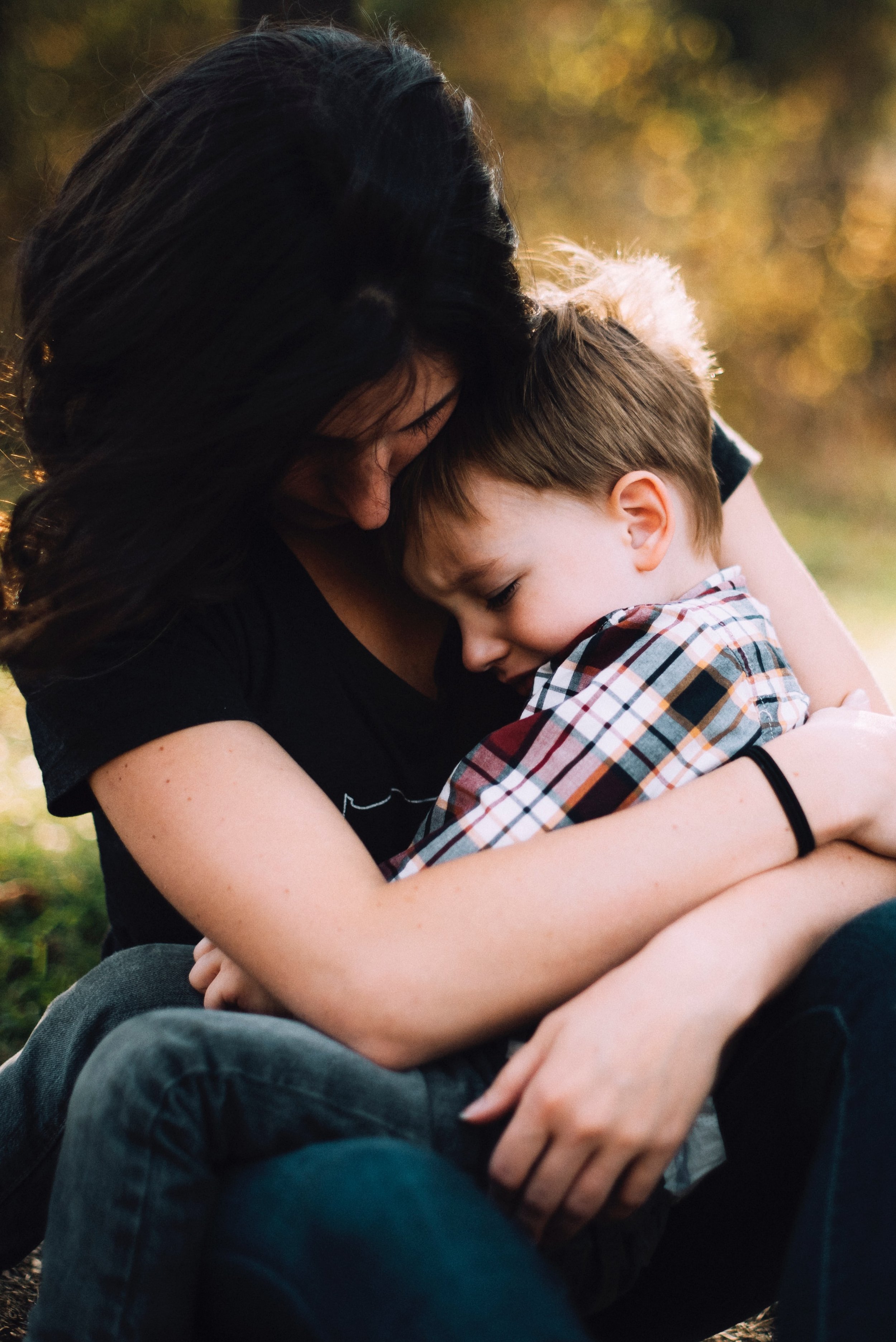How to organically enter into life with a caregiving family has been on my mind since September when my dear Aunt Donna died.
Since then, memories of how she, her husband Jim, and their four children embraced our family after my dad was diagnosed with multiple sclerosis in 1959 have simultaneously caused and comforted my grief for the woman who loved our family well.
In honor of Aunt Donna, who taught me how to organically enter into life with a caregiving family, I'm sharing some of the ways she did so and changed our lives for the better.
Daycare: Donna watched her first child and my brother, both one-year-olds, and a four-year-old me, while our Mom taught school. This selfless act was a godsend for Mom as she taught school while attending night classes, cared for Dad, and took my older sister to first grade. My aunt eased Mom's burdens and made me and my brother feel secure and loved.
Photo by Jordan Whitt on Unsplash
Substitute Teacher: Aunt Donna was a substitute in the elementary building I attended. The sight of her in the hall and sometimes in my classroom always rendered me speechless. I couldn't reconcile her presence at school. She never pushed me to acknowledge our family bond. Instead, she waved or winked and treated me like everyone else. This simple act made me feel safe.
Sunday Afternoon Visits: Donna, Jim, and their kids came over a couple of Sunday afternoons a month. The adults played cards. The kids played together. Eventually, Mom and Donna would give each kid an apple and send us to the living room to watch The Wonderful World of Disney. Because Sunday visits to their home—with steps and a small bathroom Dad couldn't negotiate were out of the question, they made themselves accessible to us instead.
Visits and Errands: Throughout Dad's 38-year illness, Donna checked on Dad when Mom and us kids were at school. She drove him to physical therapy appointments, ran errands, and even took me to the orthodontist 30 miles away. Later as Dad's health declined, she visited him in the hospital and the nursing home. For decades, her practical care was unwavering.
Adventures: Donna and Jim piled our family and theirs into their station wagon, with Dad's wheelchair tied on top, for joint summer adventures. They took us places we couldn't navigate alone. They invited my siblings and me on their camping trips. Donna once took her three kids and the three kids in our family by train from northwest Iowa to Chicago. By herself. We had such fun. Our past is a movie reel of good memories because she selflessly shared her family with us.
Celebrations: Donna remembered our birthdays. She called our names and cheered when we marched in school parades. She and her family attended our plays, concerts, sports, and church activities. Award ceremonies. Graduations. Weddings. They were there. Always there. Usually helping Dad get there, too.
Sorrows: When Dad was diagnosed with multiple sclerosis in 1959, Jim and Donna drove long hours to visit him in the hospital. When my father's parents died in 1956 and 1963, they attended their funerals. When Dad died in 1997, they were there. Not just them—but their kids as well. Their kids' spouses. Their kids' kids. Ours wasn't a hugging family, but Donna hugged us. She gave the best hugs. She held us while we cried.
Holidays: Our families did many Thanksgivings, Christmases, and Easters together for 30 years or more. Some point after our generation reached adulthood, our combined families began congregating every Labor Day weekend for two days of fun. Donna brought her famous "granny slaw," Jim brought "fat pills" (aka doughnuts), and the rest of us—3 generations of a family––filled in the gaps. We are reviving this tradition next Labor Day. Donna won't be there in body, but her spirit of love will be with us.
These are only a few of the ways Donna did life with my childhood family. Her acts were more ordinary than flashy, they were economical rather than expensive, they were more practical than fancy, and they were more present than presents. My Aunt Donna's family were and still are examples of how to organically enter into life with a caregiving family in transformative ways. They are examples of a scripture passage that describes the essence of my dear aunt:
Love is patient and kind; love does not envy or boast; it is not arrogant or rude.
It does not insist on its own way; it is not irritable or resentful;
it does not rejoice at wrongdoing but rejoices with the truth.
Love bears all things, believes all things, hopes all things, endures all things. Love never ends.
1 Corinthians 13: 4-8a.
Lord, thank you for Aunt Donna, who was Christ with skin on to me. Lord, move others to love caregiving families well as she did. Amen.
Jolene Philo is the author of several books for the caregiving community. She speaks at parenting and special needs conferences around the country. She's also the creator and host of the Different Dream website. Sharing Love Abundantly With Special Needs Families: The 5 Love Languages® for Parents Raising Children with Disabilities, which she co-authored with Dr. Gary Chapman, was released in August of 2019 and is available at local bookstores, their bookstore website, and Amazon. See Jane Sing!, the second book in the West River cozy mystery series, which features characters affected by disability, will be released in November of 2022.




